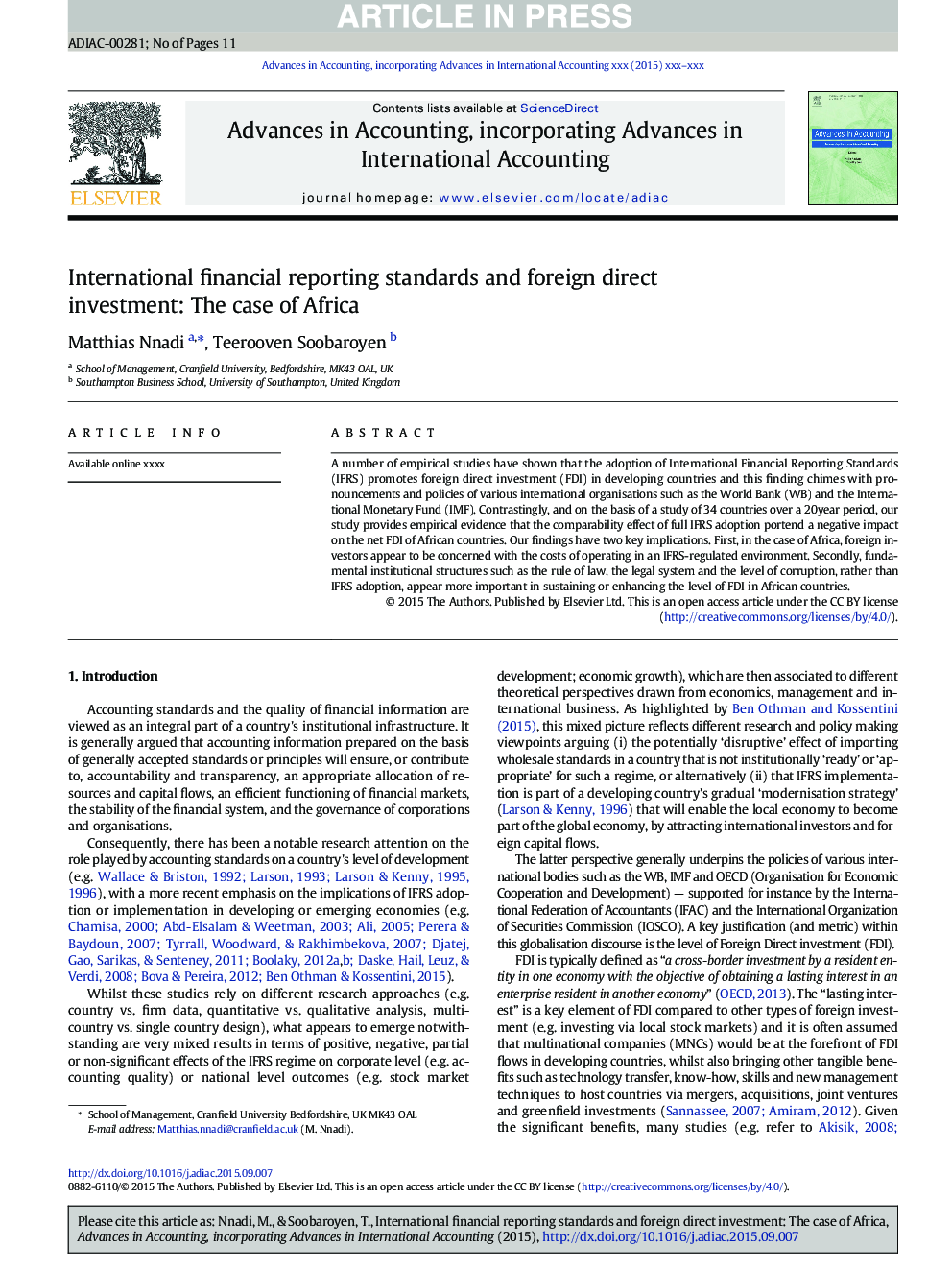| Article ID | Journal | Published Year | Pages | File Type |
|---|---|---|---|---|
| 7340142 | Advances in Accounting | 2015 | 11 Pages |
Abstract
A number of empirical studies have shown that the adoption of International Financial Reporting Standards (IFRS) promotes foreign direct investment (FDI) in developing countries and this finding chimes with pronouncements and policies of various international organisations such as the World Bank (WB) and the International Monetary Fund (IMF). Contrastingly, and on the basis of a study of 34 countries over a 20year period, our study provides empirical evidence that the comparability effect of full IFRS adoption portend a negative impact on the net FDI of African countries. Our findings have two key implications. First, in the case of Africa, foreign investors appear to be concerned with the costs of operating in an IFRS-regulated environment. Secondly, fundamental institutional structures such as the rule of law, the legal system and the level of corruption, rather than IFRS adoption, appear more important in sustaining or enhancing the level of FDI in African countries.
Related Topics
Social Sciences and Humanities
Business, Management and Accounting
Accounting
Authors
Matthias Nnadi, Teerooven Soobaroyen,
